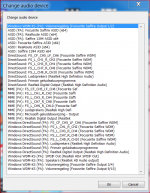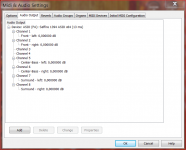erikds
New member
I have experienced a relatively large latency with reverb when first starting GrandOrgue, but this can be fixed by changing the audio settings in (seemingly) any way. Once reverb has been turned off and back on again, a new IR file has been chosen, dirac pulse adjusted, pressing the "panic" button etc. the latency problem is solved.
I'm attaching a pdf document here to show the audio settings panes in GrandOrgue. I took screen shots of the panes.
I have downloaded and installed the latest build for windows (rev 1178) and can confirm that the same problem occurs when first launching this new version of GrandOrgue as well. I have been able to replicate it many times. As I mentioned in my previous post about this, changing any of the audio settings (including settings other than those on the reverb panel) will solve this problem until GrandOrgue is closed completely and opened again.
Matt
I have the same or at least a similar experience.
Attached are the screen shots of my settings.
What i have is:
About half a second delay between pressing a key and sound.
Very distorded sound but only from notes played on middle keyboard, not on other ones.
This happens only immediately after loading a disposition; pressing e.g. panic button removes any problem.
This is on Windows 7 64 bit system, 8Gb Ram, Q6600 quadcore, Focusrite Saffire sound card using its WDMKS/WASAPI driver.
Anything in addition helpfull to pinpoint cause of the problem?
All the best.
Erik.
View attachment GO-latency.zip



